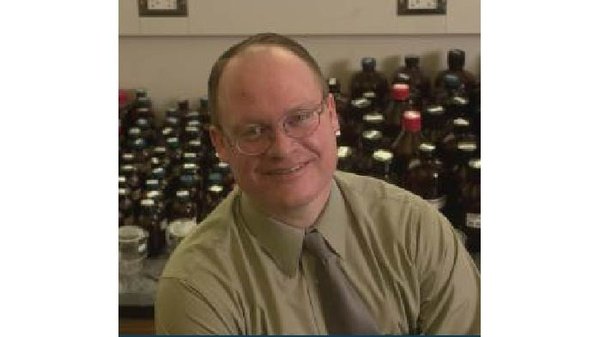Chem Professor Receives Grant, Strengthens Antibiotics
Feb. 10, 2010

Paul Savage, a faculty member in the Department of Chemistry and Biochemistry, recently received a $2.9 million research grant from the National Institute of Allergy and Infectious Diseases (NIAID). The grant will fund Savage's continuing research on a family of antimicrobial agents that he developed called ceragenins.
Savage refers to ceragenins as “mimics” of the body's antimicrobial peptides, compounds that act as the body’s front-line defenses against infection and many diseases. Oftentimes people who suffer from infections do not have sufficient of these antimicrobial peptides to naturally battle intruding bacteria and viruses. Medical experts have traditionally prescribed various types of antibiotic medications to help the body's natural defenses fight infection. However, many bacteria can develop a resistance to these antibiotics, rendering them largely ineffective.
That's where ceragenins come into play. Savage’s “mimics” are so similar to the body's natural peptides that they can often evade many of the complications typically associated with more traditional antibiotics. He identifies the inability of bacteria to develop resistance to ceragenins as a major benefit that may allow new antibiotics to successfully battle infections that other medicines have heretofore failed to eradicate.
“Ceragenins are active against a broad spectrum of bacteria, including drug-resistant organisms,” he said. Furthermore, ceragenins maintain their effectiveness for an extended period of time, making them more efficient than many other drugs.
“Bacterial resistance to antibiotics is increasing at an alarming rate,” Savage said. “The ceragenins do not readily engender resistance, so it is likely that they can be used for extended periods without having bacteria become immune to their effects.”
As a result of these unique properties, patients could potentially enjoy the positive effects of these new antibiotics longer than they otherwise could with traditional medications. Savage’s NIAID grant will allow for further exploration of this medical breakthrough that could yield widespread advantages in the near future.
By Natalie Wilson